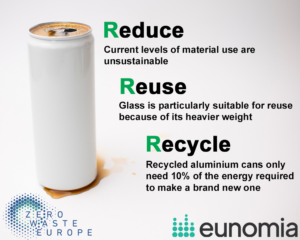NRG Riverside secures eight-year contract-hire agreement with Urbaser
Urbaser has awarded NRG Riverside an eight-year contract for the supply of refuse collection vehicles for its deals with Tonbridge and Malling and Tunbridge Wells borough councils’.

The contract will see 40 vehicles, with complete repair and maintenance support, delivered to the councils this year.
The vehicle rollout started at the beginning of June, only three months after the contract was awarded, and the last deliveries will take place in October.
Gary Wilson, operations director for the South, NRG Riverside, said: “It is a proud month for us as we mobilise this contract, continuing our relationship with Urbaser. We have experienced an efficient and successful rollout, so a massive thanks to the NRG Riverside and Urbaser mobilisation teams.”
Palatine acquires Roydon Recycling
Private equity investor Palatine has made a “significant investment” in Swinton-based waste management company Roydon Recycling.
Headquartered in Swinton, Greater Manchester, Roydon Recycling works with many food and beverage, manufacturers across Europe, advising on waste management strategies to “increase resource efficiency and support the circular economy”.
Roydon Recycling is being “carved out” of the Roydon Group and current CEO, Paul Hodgkiss will continue to lead the company, with all existing staff to remain with the business as part of the investment.
Greg Holmes, impact investment director at Palatine, said: “Roydon is proven market-leader in developing innovative waste strategies, audits, consultancy and management. Given the circular economy is so high on the agenda, it is great to welcome a company with such an aligned mission to our Impact Fund, as we continue to deliver returns with purpose.”
Paul Hodgkiss, chief executive of Roydon Recycling, said: “The team at Roydon Recycling has significantly grown over the last few years, as well as achieving great results. The investment from Palatine will enable us to multiply our positive impact with new and existing clients, as we aim for a fully circular economy.”
Zero Waste Europe details climate impact of packaging
A recent report by Zero Waste Europe has revealed that the production of glass, plastic, and aluminium drink products is expected to make “substantial contributions” to climate change.

Of the three materials, glass was found to be the largest contributor to climate impact. This finding has sparked calls for accelerated improvements in reuse systems and infrastructure, as the heavier weight of glass makes it more suitable for reuse rather than recycling.
The inclusion of glass in planned deposit return schemes has become a subject of intense debate in the UK. However, the report presents a different perspective, emphasising the importance of prioritising reuse over recycling for end-of-life glass products.
The report highlights that recycled glass bottles still require 75% of the energy needed to produce new bottles, whereas aluminium cans only require 10%.
Despite ongoing efforts to decarbonise production processes, the report warns that even with significant progress, the use of single-use drinks packaging, including glass, plastics, and aluminium, must be substantially reduced to mitigate the worst effects of climate change.
Aline Maigret, head of policy at Zero Waste Europe, said: “This research shows the EU packaging policy is ill-equipped to deliver on the Net Zero agenda. Overall material use must be reduced in all packaging categories, and this speaks in favour of ambitious prevention and reuse targets. To add to this, glass’ incredibly high carbon footprint makes it unsuitable for single-use applications. The new PPWR should plan a material transition away from single use in general, but with a particular focus on glass and PET”.
Blaby district council refuse workers announce strike
Refuse workers working for Blaby district council are to strike this week in a dispute over pay.
On 20 June, the workers represented by the GMB Union announced the strike action, which covers those working on street cleansing, waste collections, HWRCs sites and the transfer station.

Dave Warwick, GMB organiser, said: “Strike action is always a last resort, but our members are tired of being ignored by council top brass.The council has failed to follow up on commitments, failed to offer negotiations and failed to get an offer on the table.”
The action is expected to take place on 28 June and the 5, 12 and 19 July.











Subscribe for free